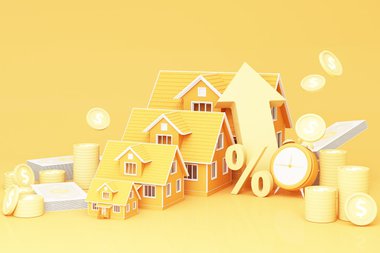Mortgage Rates
Our Best Mortgage Rates
| TERMS | FIXED | VARIABLE | PRIVATE 1ST MORTGAGE | PRIVATE 2ND MORTGAGE |
|---|---|---|---|---|
| 5 Year | 4.59% | 6.20% | ||
| 4 Year | 4.74 | |||
| 3 Year | 4.89 | 6.25% | ||
| 2 Year | 5.59% | 6.80 | 8.99% | 10.99% |
| 1 Year | 6.49% | 6.85 | 8.49% | 10.99% |
| 7 Year | 4.84% | |||
| 10 Year | 6.10% |
-
1. What is a mortgage rate?
-
2. What does it depend on?
-
3. How to Find Best Rates in Ontario
-
4. What affects your mortgage rate?
-
5. Mortgage Term Length
-
6. Short-term / long-term mortgage types
-
7. Choosing a mortgage term
-
8. What happens at the end of your mortgage?
-
9. Variable and Fixed mortgages
-
10. Prime interest rate
-
11. Insured, insurable and uninsurable mortgages
-
12. Credit score and credit history
-
13. Mortgage prepayment penalties
-
14. Mortgage Help and frequently asked questions
-
15. Why you should work with a mortgage broker?
What is a mortgage rate?
A mortgage rate is the interest rate at which a lender agrees to loan money to a borrower to purchase or refinance a home. Mortgage rates can be either fixed, variable, or adjustable. A fixed mortgage rate means that the interest rate will stay the same throughout the life of the loan, while an adjustable mortgage rate means that the interest rate can change periodically, typically in response to changes in a benchmark interest rate index. The payment usually remains the same for a variable rate regardless of changes to the prime rate unless a trigger point is reached, whereas with an adjustable-rate mortgage, your monthly payment will fluctuate as the prime interest rate fluctuates.
Mortgage rates are typically expressed as an annual percentage rate (APR) which is based on your monthly payment amount, and includes both the interest rate and any fees or other charges associated with the loan. The APR can help borrowers compare different mortgage offers by taking into account the total cost of the loan, including both the interest and any fees that are associated with the origination and funding of the loan.
What does it depend on?
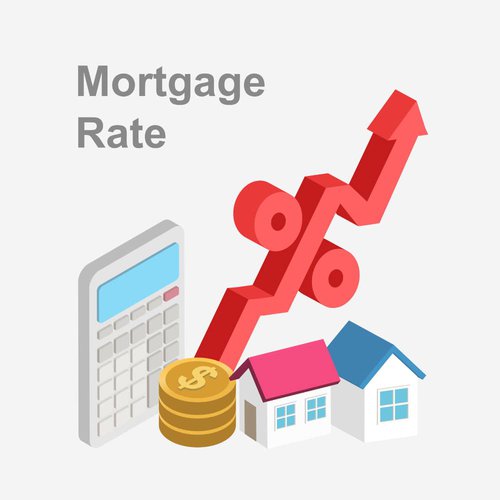
Mortgage rates can vary depending on certain factors, including the type of mortgage, the borrower's creditworthiness, the size of the down payment, the length of the term of the loan, the amortization period, and more. Your lender will analyze your financial data and credit worthiness to determine your rate. For example, if a borrower has a high credit score and a large down payment, their mortgage rate may be changed to reflect the reduced risk they pose to their lender. A borrower with a lower credit score and a smaller down payment may be charged a higher interest rate.
Mortgage rates may also vary based on the current overnight lending rate, as set out by the Bank of Canada, or based on the bond yield rates and other economic policies. The overnight lending rate is the interest rate at which banks can borrow or lend funds from the with each other overnight. Changes in this rate accounts for variations in the cost of borrowing for buyers and businesses, and can help you get a feel for where your adjustable rates and variable rates are going.
The overnight lending rate is often used as a benchmark for other short-term interest rates, such as the prime rate, which is the rate at which banks lend to their most creditworthy customers. When the prime rate is down, many consider it to be a good window of opportunity.
How to Find Best Rates in Ontario
There are several steps you can take to help find the best mortgage rates in Ontario, and more specifically, the Toronto area:
- Shop around: It is a good idea to compare mortgage rates from multiple lenders, including banks (TD, BMO, CIBC, RBC, Scotiabank, etc.), credit unions, and mortgage brokers before signing a mortgage. Having a wider data pool will help you get a sense of the current mortgage rates available in the market and allow you to find the best rate for your situation. Often times, alternative lenders have fewer restrictions than the big banks. It is a good idea to look into what set of restrictions applies to you.
- Improve your credit score: Your credit score can have a significant impact on the mortgage rate you are offered. Lenders often offer lower mortgage rates to borrowers with good credit scores, as they are seen as lower risk. You can improve your credit score by paying your bills on time, keeping your credit utilization low, and not applying for too much credit at once. Once you are ready, you can apply for a mortgage with your newly improved score and hope that your application is not withdrawn.
- Consider different mortgage products: There are many different types of mortgages available, each with its own set of terms and conditions. By considering different mortgage products, and comparing various Toronto mortgage rates, you may be able to find a mortgage that offers a lower interest rate and more favourable terms. You may also want to look at rates outside your immediate province (e.g. Toronto rates in comparison to Quebec rates) to have a glimpse of the bigger picture when renewing your mortgage.
- Negotiate: Don't be afraid to negotiate the mortgage rate and terms with your lender. If you have a good credit score and a strong financial profile, you may be able to negotiate a lower interest rate or more favourable terms. If this is the case, you will receive notice of any changes made by your lender post-negotiation.
- Consider working with a mortgage broker: A mortgage broker can give you a hand by helping you compare mortgage rates and products from multiple lenders. Brokers can also take on the bulk of the accounting required to devise an ideal payment plan, making things simpler for you. These measures can save you time and help you find the lowest rate, as well as terms that are aligned with your current mortgage needs.
It is important to carefully consider your financial situation and needs before choosing a mortgage, and to carefully read and understand the terms and conditions of any mortgage product you are considering.
Canada Interest Rates from 1980 to 2023
Mortgage rates in Canada have varied significantly over time, influenced by various economic and political factors. Here is a brief overview of the history of mortgage rates in Canada:
- In the 1950s and 1960s, mortgage rates in Canada were relatively stable and typically ranged from 5% to 6%.
- In the 1970s, mortgage rates may have begun to rise due to several factors, including high inflation, rising oil prices, and the adoption of floating exchange rates by many countries. By the end of the decade, mortgage rates had reached double digits in some cases.
- In the 1980s, interest rates increased across the country, peaking at around 21% in 1981. This was due in part to the government's efforts to curb inflation by raising interest rates.
- In the 1990s, mortgage rates began to decline as the economy improved and the government lowered interest rates. By the end of the decade, mortgage rates had fallen by a significant amount to around 6%.
- In the 2000s, mortgage rates remained relatively stable, hovering around 6% for some time without changing. However, there were some fluctuations, such as a spike in rates in 2007 due to the global financial crisis.
- In the 2010s, mortgage rates remained relatively low, with the average rate hovering around 3%. However, there were some fluctuations, such as a rise in rates in 2018 due to the Bank of Canada raising its benchmark interest rate.
- In 2020, mortgage rates in Canada saw a significant drop due to the COVID-19 pandemic and the measures taken by the government and central bank to address the economic impact of the crisis. The Bank of Canada lowered its benchmark interest rate to 0.25% in March 2020 in response to the pandemic, which led to a decrease in mortgage rates offered by lenders.
- In 2021, mortgage rates began to rise as the economy improved and we found ourselves in a seller’s market. the BoC signaled that it would begin to slowly normalize interest rates. The BoC raised its benchmark interest rate to 0.50% in April 2021 and to 0.75% in July 2021. These moves were expected to lead to an increase in mortgage rates offered by lenders.
- In 2022, the BoC continued to gradually raise its benchmark interest rate in response to the improving economy and rising inflation. The benchmark rate was raised seven times this year, hitting 4.25% in December 2022. These moves were also expected to lead to an increase in mortgage rates offered by lenders.
- In 2023, the BoC held the overnight interest rate steady at 4.50% for the first time in over a year during their March 8, 2023 interest rate announcement. This was in response to slightly slowing inflation and the development of a banking crises south of the border. This put a pause on a years long worth of rate hikes, and on April 12, 2023 the Bank of Canada continued in this direction and announced yet another hold on their benchmark interest rate. This came as inflation continued to trend downwards.
Toronto-Dominion Bank Mortgage Rates
| TERM | FIXED | VARIABLE | HIGH-RATIO | |
|---|---|---|---|---|

|
2 Years | 6.52% | N/A | N/A |
| 3 Years | 6.06% | 7.05% | 6.06% | |
| 5 Years | 5.39% | 6.8% | 5.19% |
Click here
to find the latest rates from Toronto-Dominion Bank
Bank of Nova Scotia Mortgage Rates
| TERM | FIXED | VARIABLE | HIGH-RATIO | |
|---|---|---|---|---|

|
2 Years | 6.49% | N/A | 6.09% |
| 3 Years | 5.84% | N/A | 5.44% | |
| 5 Years | 5.74% | 6.65% | 5.34% |
Click here
to find the latest rates from Bank of Nova Scotia
Royal Bank of Canada Mortgage Rates
| TERM | FIXED | VARIABLE | HIGH-RATIO | |
|---|---|---|---|---|

|
2 Years | 7.09% | N/A | N/A |
| 3 Years | 6.7% | N/A | N/A | |
| 5 Years | 6.49% | 6.75% | 5.89% |
Click here
to find the latest rates from Royal Bank of Canada
Bank of Montreal Mortgage Rates
| TERM | FIXED | VARIABLE | HIGH-RATIO | |
|---|---|---|---|---|
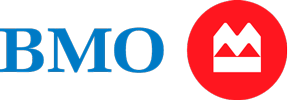
|
2 Years | 7.69% | N/A | N/A |
| 3 Years | 6.05% | 8.9% | N/A | |
| 5 Years | 5.79% | 7.0% | 5.34% |
Click here
to find the latest rates from Bank of Montreal
Canadian Imperial Bank of Commerce Mortgage Rates
| TERM | FIXED | VARIABLE | HIGH-RATIO | |
|---|---|---|---|---|

|
2 Years | 7.29% | N/A | N/A |
| 3 Years | 7.09% | 7.2% | N/A | |
| 5 Years | 6.94% | 6.7% | 5.59% |
Click here
to find the latest rates from Canadian Imperial Bank of Commerce
What affects your mortgage rate?
Your mortgage rate can be affected by a number of factors, including:
Credit score
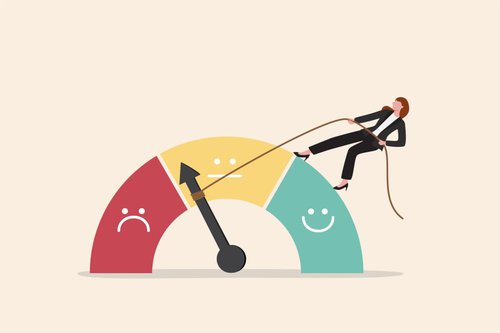
In Canada, your credit score can play a significant role in determining the mortgage rate that you are offered. Lenders use credit scores, along with other factors, to assess the risk of lending to you. If you have a high credit score, lenders may view you as a lower-risk borrower and may offer you a lower mortgage rate as a result. On the other hand, if you have a low credit score, lenders may view you as a higher-risk borrower and may offer you a higher mortgage rate to compensate for the increased risk.
Down payment
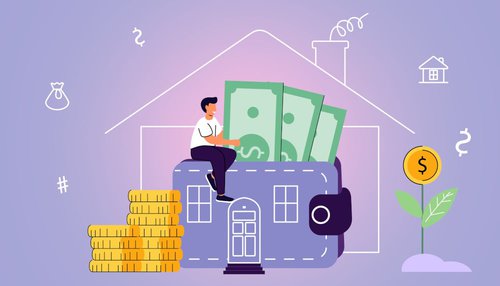
The size of your down payment can affect your mortgage rate in several ways. A larger down payment can lead to a slightly lower mortgage rate, as it reduces the amount of money that the lender needs to lend to you. This can be especially beneficial if you are able to put down a down payment of 20% or more, as it can allow you to avoid paying mortgage default insurance, which is required on high-ratio mortgages (those with a down payment of less than 20%). It is a good idea to save up for a down payment before you decide where to live.
A smaller down payment, on the other hand, can lead to a higher mortgage rate, as it increases the amount of money that the lender needs to lend to you and increases the lender's risk. In addition, a smaller down payment may require you to pay mortgage default insurance, which can also increase your mortgage rate. Except in the case of a high-ratio insured mortgage, which tends to come with the most attractive low rates, but added monthly fees and closing costs for the mandatory mortgage default insurance premium.
Mortgage Affordability Calculator
Type of loan

Different types of loans, such as fixed-rate, variable rate, and adjustable-rate mortgages, can have different mortgage rates. It is important to learn the difference. A fixed-rate mortgage has an interest rate that is fixed for the entire term of the loan. This means that your mortgage rate and monthly payments will remain the same for the duration of the loan, regardless of changes in market interest rates. A variable-rate mortgage and adjustable-rate mortgage, on the other hand, has an interest rate that can change over time based on market interest rates. This means that your mortgage rate and monthly payments may fluctuate, depending on changes in market conditions. In general, fixed-rate mortgages tend to have higher mortgage rates than variable-rate mortgages, due to the added stability and predictability they offer, but that is not always the case and will depend on various economic situations.
Loan term

A shorter loan term or amortization term can lead to a lower mortgage rate, as it means that the lender will be repaid more quickly. Typically, longer term loans or mortgage loans that are amortized over a longer period of time pose a greater risk to your lender as it takes longer for them to make back their original investments. As such, lenders will often charge higher interest rates on longer-term loans to accounted for the added risk they are taking on.
Market conditions

Mortgage rates can be influenced by broader economic conditions, such as the state of the housing market and the level of interest rates set by the Bank of Canada. Changes in the market can make it easier or more difficult for Canadians to purchase homes. This also may differ slightly based on where you are located.
Lender

Certain lenders can offer special rates, so it can be helpful to shop around and compare rates from multiple lenders. As a matter of fact, some alternative lenders may even offer lower rates than the banks.
It's important to consider these factors when shopping for a mortgage, as even a small difference in mortgage rate can make a significant impact on your monthly payments and the overall cost of your home loan.
Mortgage Term Length
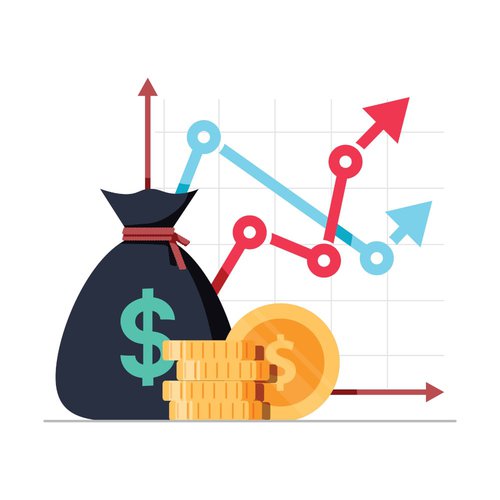
The mortgage term is the length of time for which the terms of your mortgage and interest rate will be in effect. The mortgage isn't always entirely repaid at the conclusion of the term, though (for example, a 25-year mortgage may have a term of five years). To prolong the duration of your mortgage and keep making payments, you might need to renew or renegotiate it. Sometimes refinancing your mortgage or switching to another lender might be the best option for you upon renewal.
Most Canadians opt for a 5 year variable or fixed mortgage, but different term length options may be considered based on a variety of different factors. For more information, check out our guide on how to negotiate the best mortgage terms, including term length.
Some borrowers confuse their mortgage term with amortization periods, but it is important to understand that the two are not the same, and one cannot rely on this false assumption.
An amortization period represents how long it would take to complete your mortgage if consistent payments were made at a specific interest rate. For example, if your monthly payment is $2500, and your total mortgage is $600,000, it would take you 20 years to fully pay off your loan. In this case, your mortgage would have an amortization period of 20 years.
Compared to an amortization period, a mortgage term only represents the period of time for which the deal you have made with your lender (including interest rate, payment schedules, etc.) is relevant, without needing to be renegotiated or renewed.
Short-term / long-term mortgage types
In Canada, the most common mortgage term lengths are 5 years, 7 years, and 10 years long. Although 1 year, 2 year, 3 year, and 4 year options are available through many institutional lenders. Private mortgages tend to have shorter terms of 6 months, 1 year, and in some cases 2 years. These are considered to be short-term mortgages. Both 5 year fixed mortgages and 5 year variable mortgages will fall into the longer-term category. The shortest terms are typically 6 month or 1 year fixed terms and 1 year variable terms, although 2 year fixed and 3 year fixed terms have also been increasing in popularity.
A short-term mortgage with a shorter amortization period has a shorter repayment period and a higher interest rate. The main advantage of a short-term mortgage is easily that it allows you to pay off your mortgage faster and save money on interest in the long run. It also gives you the option to refinance your mortgage at a lower interest rate if rates go down.
On the other hand, a long-term mortgage with a longer-term amortization period has a longer repayment period and a lower interest rate. The advantage of a long-term mortgage is that it has lower monthly payments, which can possibly make it easier to afford. However, it will also cost more in the long run due to the higher interest rate.
When choosing between a short-term and a long-term mortgage, you should consider your financial goals, budget, and future plans.
Choosing a mortgage term
When choosing a mortgage term length with certainty, there are several factors to consider:
- Your financial goals: Do you want to pay off your mortgage as quickly as possible, or do you prefer a lower monthly payment? Can you afford payments of that size? What are the drawbacks of your decision?
- Your budget: Can you afford the higher monthly payments of a 15-year mortgage, or do you need the lower monthly payments of a 30-year mortgage?
- Your financial flexibility: Do you have the financial flexibility to make extra payments on your mortgage, which can help you pay off your mortgage faster and save money on interest?
- Your future plans: Do you plan on staying in your home for a long time, or do you think you might move in the next few years? Where are you thinking of living in the future?
If you have a stable income and are confident that you can afford higher monthly payments, a short-term mortgage might be a good option for you. If you have a lower income or are uncertain about your future financial situation, a long-term mortgage might be a better choice.
Ultimately, the best mortgage term length for you will depend on your individual financial situation and goals. It's a good idea to speak with a financial advisor or Clover Mortgage broker to determine the best option for you.
What happens at the end of your mortgage?
As the end of your mortgage term approaches, you will have a very important decision to make. About 4 to 6 months in advance of your mortgage renewal date, you should already know whether or not you wish to remain with your current lender, or shop around for lower interest rates and terms elsewhere. There are also a few other courses of action you can consider. Here are just a few of the options available to you at the end of your mortgage term:
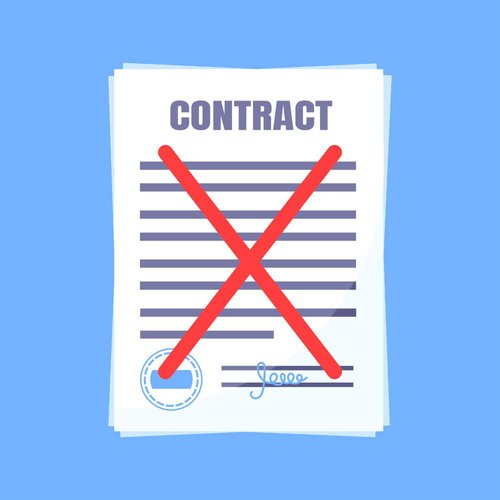
- Pay off the remaining balance: If you have been making regular payments on your mortgage, you should have paid off a significant portion of the balance. You can choose to pay off the remaining balance in full, either with a lump sum payment or by refinancing your mortgage.
- Renew your mortgage: If you have a good credit score and have been making regular payments on your mortgage, you may be able to renew your mortgage at a new interest rate. This will allow you to continue making payments on your mortgage for another term. For more information, check out our guide on how to renew your mortgage with a better interest rate.
- Refinance your mortgage: If you are unable to pay off the remaining balance or if you want to take advantage of lower interest rates, you may want to consider refinancing your mortgage. This involves taking out a new mortgage to pay off your existing mortgage and potentially securing a lower interest rate.
- Sell your home: If you are no longer interested in maintaining ownership of your home, you may choose to sell it and use the proceeds to pay off the remaining total amount of your mortgage. You can put aside any remaining proceeds towards buying your next home, perhaps in a more expensive place, or with enough space to start a family.
Ultimately, the option you choose will depend on your financial situation and goals. We recommend booking a consultation with one of our Clover Mortgage Brokers to determine the best course of action for you.
Variable and Fixed mortgages
When applying for a mortgage, one of the biggest decisions you will need to make is whether to take on a fixed or variable rate mortgage. Before doing so, however, it is important to understand the difference between fixed mortgage rates and variable mortgage rates, and the ways in which they can impact the overall cost of your mortgage.
A fixed interest rate is one that remains consistent for a pre-established period of time called a term. Terms typically range from 1-5 years, but can extend up to 30 years. Currently, 5 year fixed-rate mortgages are the most popular mortgage product across Canada.
As fixed interest rates remain consistent across the entire lifespan of a mortgage loan, fixed rate mortgages are popular amongst risk-averse homebuyers. If you choose a fixed rate mortgage, the consistency of your rate will protect against the risk of rising rates, and make it easier to budget your future mortgage payments.
Once you have opted into a fixed rate mortgage, it is impossible to switch into a variable rate mortgage without breaking your mortgage and incurring significant penalties.
A variable rate mortgage, on the other hand, is a loan with an interest rate that changes over time, in response to fluctuations in the market. This rate is calculated by discounting the current prime rate, and can vary based on decisions made by the Bank of Canada.
Typically, variable rates will be lower than fixed rates— given that they are a riskier choice for borrowers. As such, it may sometimes seem as though variable rates will always be lower, but they can sometimes climb higher than fixed rates, as was demonstrated this past year.
Unlike fixed rates, switching from a variable rate to a fixed rate can be done without breaking the mortgage or incurring any penalties.
In order to determine which interest rate option is the best choice for your mortgage plan, it is important to first identify your personal mortgage goals. If you are looking to sell or refinance your primary residence in just a few years, you may be more interested in short-term savings than a long-term pay-off. On the other hand, if you are looking to enter into a 30-year mortgage that you intend to pay off until maturity, you may value long-term savings over short-term gains.
If you are a buyer that values consistency and risk-avoidance, you may prefer a fixed rate mortgage. On the other hand, if you expect the Bank of Canada to begin lowering mortgage rates before the end of 2023, and want to take advantage of that trend, you may find a variable rate mortgage to be more appropriate. Variable rate mortgages are also easier to break than fixed rate mortgages. If you are intending on breaking your mortgage anytime soon, a variable rate mortgage may be best for you.
Prime interest rate

The prime interest rate in Canada is the benchmark interest rate that financial institutions use as a reference for setting the interest rates they charge on their loans, including mortgages that are lent out with either a variable or adjustable rate. It is determined by the central bank of Canada, the Bank of Canada, and is based on a variety of economic factors, including inflation, economic growth, and the supply and demand for credit.
The Bank of Canada sets the prime interest rate using a target for the overnight rate, which is the interest rate at which banks lend and borrow money from each other on an overnight basis. The Bank of Canada can adjust the target for the overnight rate to directly influence the supply and demand of credit in the economy, and the prime interest rate typically follows the direction of the overnight rate.
The prime interest rate can have a significant impact on your mortgage, as it can affect the interest rate that you are offered when you apply for a mortgage. If the prime interest rate is low, you may be able to secure a lower interest rate on your mortgage, which could result in lower mortgage payments per month. On the other hand, if the prime interest rate is high, you may be offered a higher interest rate on your mortgage, which could result in higher monthly mortgage payments, and a decreased ability to pass the mortgage stress test.
It is important to note that the prime interest rate is just one factor that can impact the interest rate you are offered on your mortgage. Other factors that can influence your mortgage interest rates include your credit score, the type of mortgage you choose, the terms of your mortgage, and the lender you choose. Under certain circumstances, changes to the prime rate may not affect your mortgage at all.
Insured, insurable and uninsurable mortgages
In Canada, a mortgage is considered insured when it is protected by mortgage default insurance, also known as mortgage loan insurance. This type of insurance is typically required when a buyer makes a down payment of less than 20% of the purchasing price of a home they are borrowing for. Mortgage default insurance protects the lender in the event that the borrower defaults on their mortgage payments and the lender is unable to recover the full amount of the loan. The three mortgage default insurers in Canada are Sagen (formerly known as Genworth Financial), Canada Guaranty Mortgage Insurance Company, and the Canadian Mortgage and Housing Corporation, also known as the CMHC. Each insurer, although mainly carrying similar products, do tend to have varying product offerings that vary slightly from one another.
Since lenders are fully covered by the mortgage default insurance, and are therefore taking on no risk, insured mortgages will typically have the lowest rates. In exchange for this reduced cost, an insured mortgage will cost the borrower additional mortgage insurance premiums.
A mortgage is considered insurable when it meets the requirements for mortgage default insurance, but the borrower has put down a payment of at least 20%. In order to qualify to be default insured, the borrower must meet certain criteria, such as having a good credit score and a stable income. In this case, the insurance is paid by the lender and not the person borrowing. As such, the interest rates for insurable mortgages will be slightly higher than for insured mortgages, but still lower than for uninsurable mortgages.
A mortgage is considered uninsurable when it does not meet the requirements for mortgage default insurance or when the borrower is unable to obtain mortgage default insurance for some other reason. Borrowers may be unable to meet the requirements due to a number of factors such as excessively long amortization periods, poor debt history, or an insufficient credit score. Uninsurable mortgages may be more difficult to obtain and may have higher interest rates, as the lender is taking on more risk by lending to a borrower who is not protected by mortgage default insurance.
It is also important to note that the terms insured, insurable, and uninsurable refer specifically to mortgage default insurance and do not necessarily apply to other types of insurance that may be related to a mortgage, such as mortgage life insurance or home insurance.
Credit score and credit history
In Canada, credit scores range from 300 to 900 and can play a huge role in your ability to qualify for a mortgage. Banks and lenders will use your credit score along with your credit history to determine your creditworthiness and how likely you are to make your debt payments on time. The higher your score, the more likely you are to keep up with your payments and the less risk you pose to the lender.

In the majority of cases, the minimum credit score required to qualify for CMHC insurance is 680. This is also the minimum score required to qualify for a loan from major lenders such as banks (TD, BMO, CIBC, RBC, Scotiabank, etc.).
Prospective borrowers who do not meet the requirements of the big banks may want to consider obtaining a loan from private lenders. These types of lenders often have less strict requirements than AAA lenders, but may require a larger down payment or interest rate to account for the added risk they are taking on (risk of missed payments, defaulting, etc.).
It is important to note however, that not all non-traditional lenders require higher interest rates. In fact, credit unions oftentimes offer lower rates than the major banks. Here at Clover Mortgage, we have experience working with over 50 different mortgage lenders, both traditional and non-traditional. We can help you secure a great mortgage rate regardless of your current financial situation.
On average however, the higher your credit score, the lower your mortgage rate will be. Before beginning the mortgage application process, it is a good idea to check over the contents of your credit report to ensure all the details are correct and that there are no irregularities in your data. You can also check your credit score for free, and take steps to improve it if it is not up to standards. Some steps you can take to improve your credit score include taking out a line of credit (e.g. open credit cards with a local branch of your current banking institution) and making small consistent payments, finding ways to consolidate your debt, and diversifying your current lines of credit. For more information, check out our guide on how to increase your credit score.
Mortgage prepayment penalties
Due to the manner in which interest factors into the overall cost of your mortgage, paying off your mortgage early can often save you thousands of dollars in the long run. If you have the means to, adding a little extra cash to your monthly payments can help you reduce your lifetime interest costs. Unfortunately, if you pay off more of your mortgage than you are allowed to, or attempt to pay back your loan too early, you may be charged a prepayment penalty by your lender.
Prepayment penalties serve as hedges against the risk you pose to your lender. There are many economic incentives for a borrower to refinance their subprime mortgage, but this is not a great arrangement for lenders oftentimes. Most lenders use interest payments to make their money back sooner and ensure they profit for their loan origination. Mortgage prepayments limit the amount of interest profit made by the lender. As such, prepayment charges are used by lenders to still earn the profit they require and make some, if not all of, their money back.
When you enter into a mortgage contract, your lender will define how often you can prepay your mortgage, and by how much. They will also lay out the structure and size of their prepayment penalties. Sometimes, you may even be able to negotiate these penalties at closing. It is critical that you pay attention and carefully read through the prepayment clause of your mortgage commitment. A good mortgage broker will take the time to read it with you and explain it to you in detail.
While prepayment penalties may be a strong deterrent, it is important to recognize that paying off your loans early may come with a few advantages. Beyond the money you will save on interest payments, paying off your mortgage early will also improve your debt-to-income ratio— which can help you qualify for more attractive terms and rates down the road, and rant you greater peace of mind.
Mortgage Help and frequently asked questions
Comparing mortgage amortization periods
The amortization period is the length of time it will take to pay off your mortgage principal (your base mortgage amount), and interest, in full. In Canada, the national average amortization period for a mortgage is 25 years, but it can range from as short as 5 years to as long as 40 years, depending on the lender and the borrower's circumstances.
In most cases, a 25 year amortization to 30 year amortization is an ideal length of time. Shorter amortization periods reduce the overall cost of your mortgage, but require larger monthly/bi-weekly payments. On the other hand, longer amortization periods can reduce your monthly payments, but will increase the lifetime cost of your mortgage, and many lenders do not offer longer amortization periods at the moment.
It is also important to note that loans with default mortgage insurance can have a maximum amortization period of 25 years. The only way to qualify for an amortization period of over 25 years is by making a down payment of at least 20%.
How does it affect your mortgage?
Monthly payments: A longer amortization period means lower monthly payments, because the borrower is spreading the total cost of the mortgage over a longer period of time. This can make it easier for borrowers to afford the monthly payments and qualify for larger mortgage amounts, but it also means that they will pay more in interest over the life of the mortgage if they were to stick to that same amortization length.
Total interest cost: A longer amortization period means that the borrower will pay more in interest over the life of the mortgage. This is because the borrower is taking longer to pay off the principal and is paying more in interest as a result.
Equity: A longer amortization period means that the borrower will have less equity in the property early on in the mortgage, because they will be paying less towards the principal in the early years.
It's important to consider the amortization period carefully when choosing a mortgage, as it can have a significant impact on the overall cost of the mortgage and the borrower's financial situation. Borrowers should consider their financial goals and circumstances, as well as their ability to make higher monthly payments, when deciding on an amortization period.
Payment frequency
What is the Difference Between Weekly, Bi-Weekly, and Monthly Payments?
Weekly payments will be made 52 times a year, bi-weekly payments will be made 26 times a year, while monthly payments will be made 12 times a year. More frequent mortgage payments means that each mortgage payment will be smaller (e.g. weekly payments will be smaller than your monthly payments). However, a bi-weekly mortgage payment amount is not exactly half of a monthly mortgage payment amount, as payments do not scale up on a linear scale. Typically, bi-weekly payments are slightly less than half of a monthly payment.
How Does Payment Frequency Impact Interest Costs?
Typically, the more frequent your payments, the more you save on interest throughout the year. Many lenders also offer the option of accelerated bi-weekly payments. Through this option, you are paying exactly half of a monthly payment every two weeks, as opposed to 1/26th of your total mortgage cost. This essentially means that you will be making an extra monthly payment per year— which can help you pay off your mortgage faster. A Clover Mortgage broker can help you explore a number of different options to determine which one works best for you.
Mortgage term
What Is a Mortgage Term?
A mortgage term represents the amount of time for which your interest rate and mortgage terms remain consistent. Your mortgage is usually renewed or refinanced at the end of your term. Many borrowers opt to look for better mortgage rates at this time.
Do I Have to Renew My Mortgage at the End of My Term?
Once your term has ended, the most common option is to renew your existing contract. However, there are a few other options available including refinancing your mortgage, selling your home, and paying off the remainder of your mortgage.
Which Term Should I Select?
When selecting a mortgage term length, you may want to know that the most common term in Canada is the 5-year term. This term should be adequate for most intents and purposes, unless you have specific requirements. Certain conditions apply.
Interest Rate
What Are The Different Types of Interest Rates?
The three main types of interest rates are fixed rates, adjustable rates, and variable rates. Fixed rates remain consistent over the entire length of your mortgage term, whereas variable rates and adjustable rates can fluctuate based on other conditions and changes in the prime rate, as set out by the Bank of Canada.
What are Posted Rates?
Posted rates are the interest rates publicly announced by banks and other lenders. Oftentimes, these written rates trend on the high side as lenders expect borrowers to negotiate the posted rates down.
What is a Hybrid Mortgage?
A hybrid mortgage represents a combination of fixed-rate and variable-rate loans. You begin with a fixed interest rate until the end of your applicable term, and then your rate will vary according to your mortgage lender’s terms. It may be, in some ways, the best of both interest rate options.
How Does the Prime Rate Impact Variable Interest Rates?
Your lender may change your variable interest rate based on their Prime Rate. Each lender can choose to increase or decrease their own prime rate which reflects changes in the Bank of Canada’s overnight lending rate. This in turn will increase or decrease your variable interest rate. All major Canadian banks currently have a prime rate of 6.45% as of the publication of this page.
Should You Pick a Fixed or Variable Mortgage Rate?
Whether you opt for a fixed or variable rate will depend on your personal preferences, risk tolerance, and needs. If you are risk-averse and value consistency, you may prefer a fixed rate mortgage. On the other hand, you may prefer a variable rate mortgage if you expect the Bank of Canada to begin lowering mortgage rates before the end of 2023.
CMHC insurance
Do I Need CMHC Insurance?
If you have a high ratio mortgage (you have purchased an average home with a down payment amount under 20%), you are legally required to purchase CMHC insurance. Borrowers with home prices over $1 million CAD, or with an amortization period longer than 25 years are ineligible for loan insurance, as they are required to put down a minimum down payment of 20%.
How Much Will CMHC Insurance Cost?
One of the most convenient features of CMHC insurance, is that it varies based on the size of your down payment. Your overall insurance fees will largely depend on the ratio of your loan. Persons with a 5% down payment, for instance, will pay much higher insurance premiums than those with a 15% down payment.
Open & closed mortgages
What Are The Differences Between Open and Closed Mortgages?
Under an open mortgage contract, the borrower can pay off as much of their debt as they want, when they want. There are no prepayment penalties associated with an open mortgage, however, borrowers often have to pay inflated interest rates in exchange for this perk.
Under a closed mortgage, your payment schedule will follow a set term and timeline. Sometimes, the borrower will be allowed to make a few prepayments without penalty, however the full term of the mortgage will not change. Fixed rate closed mortgages will be accompanied by stricter conditions than fixed rate open mortgages, but will also usually charge a lower interest rate in return.
Which Mortgage Type Is Better For You?
You may want to consider an open mortgage if you have a lot of excess capital, are planning to sell your home in the near future, or expect to come into larger sums of money in the near future. A closed mortgage (e.g. 5 year fixed closed mortgage, 5 year variable closed mortgage, etc.) may be a great fit for you if you plan to keep your home for the full mortgage term. However, some closed mortgages do allow for a full or partial repayment of the principal upon bona fide sale of the home, some are portable to new home purchases, and others might come with more reasonable pre-payment fees. Keep in mind that in some cases, the prepayment fees can be in the tens of thousands of dollars and might not be worth prepaying the mortgage under certain circumstance.
Curious to know what type of mortgage you might qualify for? By using our mortgage calculators, you can fill in details about your personal finances and debt history, and we will do the rest. Get an estimate of how large of a loan you can qualify for, to help you get started, before getting pre-approved by one of our expert brokers. With our easy-to-use calculator, you can have a mortgage estimate ready in just a few minutes.
We have a mortgage refinance calculator and home equity calculator that can help you determine how much equity you have in your home and how much of a mortgage refinance you might be able to get. Other calculators, such as the mortgage payment calculator or mortgage affordability calculator will help you understand how large of a mortgage you can qualify for and help you calculate how much of a down payment you may need.
When purchasing a home use our land transfer tax calculator see how much money you should put aside for the land transfer tax that you will need to pay on the closing date as part of your closing costs.
You can also always reach out to one of our knowledgeable and helpful Clover Mortgage brokers to get most of your questions answered over the phone or in person.
Click here to navigate to Calculators page.
Why you should work with a mortgage broker?

There are several reasons why working with a mortgage broker can be beneficial:
- Access to a wider range of loan products: Here at Clover Mortgage, our brokers have tied deals with a vast network of over 50 lenders. We can help you find a loan that meets your specific needs and is suited to your unique financial situation, and help you build home equity. We can help you lock in a lower rate today.
- Pre Approval: Clover Mortgage brokers are well-equipped to help you get pre-approved for a mortgage loan and save time. Having a pre-approval increases your chances of mortgage qualification, granting you that extra bit of security. You may even be able to receive a mortgage rate hold (up to 120 days) if you get things going quickly.
- Expert advice: Mortgage brokers are professionals who have a wealth of knowledge and experience in the home loan market. Our team can help you read through the fine print and provide you with expert advice on the best loan options available. We can also help negotiate terms on your behalf. Our job is not done, until you are fully satisfied with your loan.
- Convenience: Working with a mortgage broker can save you time and effort. We can handle much of he legwork involved in securing a home loan, including gathering documentation, reviewing applications, and negotiating with lenders to finalize your mortgage agreement. In the age of online banking, we offer an online application as well as hybrid touchpoints to best meet your needs, making the process as convenient as possible.
- Potential cost savings: Toronto mortgage brokers may be able to secure a lower interest rate or closing costs on your loan, potentially saving you money over the life of the loan. By connecting you with discounted rates, a broker can save you thousands in the long run, and help you reap the benefits.
- Personalized service: Here at Clover Mortgage, our brokers will work with you one-on-one to understand your financial goals and help you find the best loan solution for your mortgage needs. We can provide feedback on mortgage decisions, and offer guidance for difficult choices. Talk to us about anything, we are here to help you through the home buying process and provide you with the answers you require.
How do we offer lower mortgage rates
for the same bank products?

More Choice
We shop rates from dozens of lenders.

No Haggling
We give you the best deal upfront.

Volume Discounts
We pass on any discounts we receive to you.







